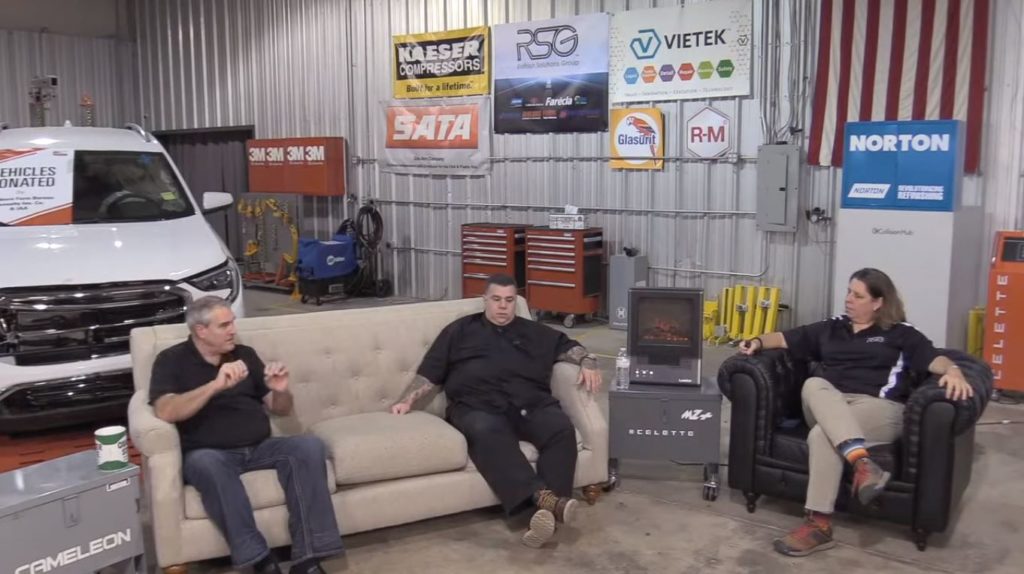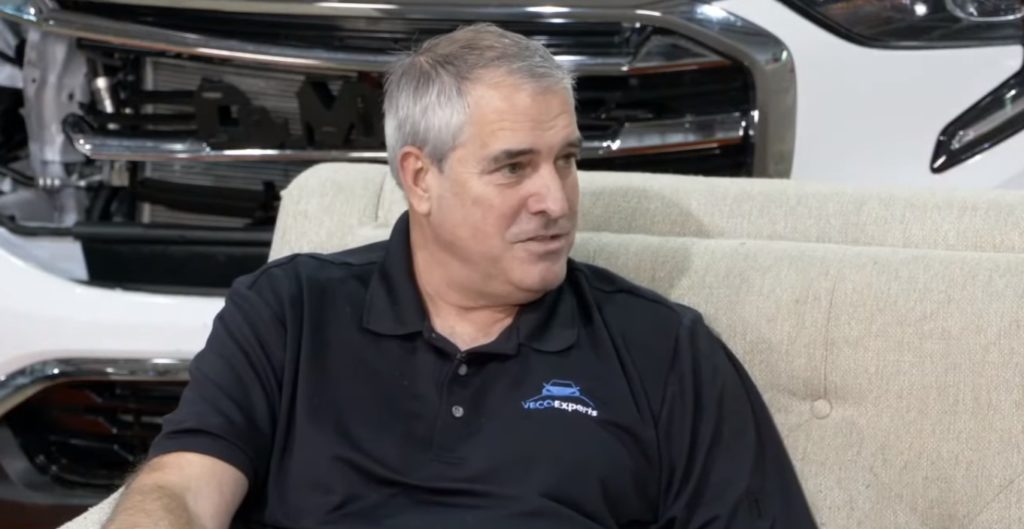
Collision Hub: Check policy carefully before attempting right-to-appraisal proceedings
By onBusiness Practices | Education | Insurance | Legal | Market Trends | Repair Operations
Repairers should pore over their consumer’s insurance policy carefully before encouraging them to initiate a right-to-appraisal action, a Collision Hub broadcast featuring three RTA veterans advised last month.
In fact, the appraisal clause might be more limited in scope than the repairer suspects — or not even exist in the policy at all, according to the show.
Before we get going, one caveat: This article and analysis is for informational purposes only and is not legal advice. Consult with a qualified attorney before taking any action. Collision Hub CEO Kristen Felder offered a similar caveat regarding her company’s Nov. 11 show featuring Larry Montanez, co-owner of P&L Consultants, and Mark Olson, CEO of Vehicle Collision Experts.
An “appraisal clause” or “RTA” offers a means for a customer — or an insurer — to resolve a dispute over the amount the insurer owes the customer for a loss without having to go to court. (Remember: Your customer is the one who actually owes your body shop, not the insurer. The insurer owes the customer indemnification for their loss, such as the cost of the repair.)
In the case of a repairable vehicle, an appraisal clause might involve both the consumer and insurer hiring an appraiser to evaluate the cost of the repair. The two appraisers also will agree on an “umpire” who will issue a third estimate. If at any time the two appraisers agree with each other on a price or either appraiser agrees with the umpire’s total, then that’s the amount the insurer owes.
That’s a general example. The actual rules will depend on the policy language, which is, after all, a legal contract “signed” by the customer and insurer.
Or, as the Nov. 11 Collision Hub show pointed out: A policy might lack any appraisal clause recourse regarding a repair bill. Felder said it’s rare that a state mandates RTA language, and “everybody writes it differently.”
Collision repairers should obtain insurance policies for each of the top insurers in the market, she advised. The wording will be different, Olson said.
Olson said the shop should also check their individual customer’s specific policy rather than the carrier’s standard policy. An insurer might have more than one version of their contract in use within the state, Felder said.
RTA and other policy language
Felder estimated she, Montanez and Olson had collectively participated in thousands and thousands of RTAs.
She and Olson described how the language could vary within policies, which Felder described as the “rules of engagement” for the insurer and consumer.
In some cases, either the insurer or the consumer can invoke the appraisal clause at any time, Olson said. But it’s possible that an appraisal clause would be contingent on the insurer’s agreement, Felder said, and Olson said sometimes the language would require both insurer and policyholder to agree.
“People miss that,” Felder said.
Felder also called the RTA process a less formal one legally than arbitration. It might call for sides to pick “‘competent'” appraisers, but this didn’t necessarily mean the appraiser needs to be licensed or specialized, she said. Olson said the appraisers selected might not even need to be independent.
He called that paragraph’s wording “huge.”
The repairer also shouldn’t just make a copy of a single relevant page from the policy and assume that’s it, according to Felder. Read the entire policy, she said.
“At any given moment, I (the insurer) can give it away, and I can take it back,” she said.
A policy might contain an appraisal clause related to total losses but not one for vehicle repairs. (Though at least one state, Virginia, has ruled that an insurer had to extend a policy’s total loss RTA to repairable vehicles anyway. Montanez called this a “big, big decision.”)
Olson said comprehensive and collision coverage might also have different appraisal clause language.
It’s also important to understand other policy language, for it too might impact the RTA proceedings, based on the show.
The RTA refers to “indemnification,” which is different than the actual repair, according to Felder.
“They are not the same thing,” she said.
The policy’s job is to cover the loss under the terms within the policy, not to pay for what a repairer would consider the vehicle damage, she said. If the policy only covers 10 percent of the loss, then the insurer only owes that much, she said. If the policy language permits alternative parts, the umpire might include them into his or her estimate, according to Felder.
Nor is the amount the customer owes the shop necessarily the same amount the insurer owes the customer, she said. For example, a policy might say that an insurer can determine an appropriate labor rate, she said.
Felder advised shops to think of the process as the customer’s policy overlaid atop the repairer’s plan.
Missing from policies
Felder warned against relying solely on an insurance agent’s assurance that an appraisal clause existed in the customer’s policy. She said it’s possible agents will confuse the customer’s auto policy with their homeowner’s policy, which in her experience universally had appraisal clauses. The shop should check the policy itself, Felder indicated.
She recalled working with a shop and customer on would-be appraisal clause action. They called the agent, who said the consumer’s policy contained the language. But when reviewing the policy, no such provision existed.
“They’re rarer to find than they are found,” Felder said. She said most insurers starting several years ago began seeking to remove that language.
However, this wasn’t a “malicious” action, she said.
“No one was using it,” she said of appraisal clauses.
Felder said that when she worked for an insurer years ago, litigation was far more likely in a dispute, with RTAs demanding only a fraction of that attention.
Olson had a similar experience. A decade ago, he handled only a handful of RTA cases a year, he said. Now, it’s a “whole different thing.” He said he had a few dozen RTAs in play at that moment.
A shop whose customer lacks an appraisal clause in the policy might wish to suggest the consumer file a department of insurance complaint to get the issue on the DOI’s radar, according to Felder.
She said she’s spoken to many examiners from many state DOIs, and most of those officials were “shocked to learn” auto policies had dropped appraisal clauses. Montanez described New York’s Department of Financial Services as “completely pissed off” at an appraisal clause’s removal.
“They can’t keep their eye on every ball,” Felder said of departments of insurance. Nearly all of those agencies’ time is spent handling compensation and health insurance issues, she said. Auto insurance isn’t in the “top of the food chain,” she said.
Felder described state departments of insurance as viewing appraisal clauses as an easy way to resolve disputes without clogging up courts. Olson noted the affordability of this option, and Felder agreed.
While the consumer might not prevail, they “do deserve a chance to fight,” she said.
More information:
“Understanding Right To Appraisal (RTA) – Live Collision Hub World Fair & Expo”
Collision Hub YouTube channel, Nov. 11, 2020
Images:
Collision Hub CEO Kristen Felder discussed appraisal clauses in a Nov. 11, 2020, “World Fair” broadcast. (Screenshot from Collision Hub video)
Vehicle Collision Experts CEO Mark Olson discussed appraisal clauses in a Nov. 11, 2020, “World Fair” broadcast. (Screenshot from Collision Hub video)
From left, Vehicle Collision Experts CEO Mark Olson, P&L Consultants co-owner Larry Montanez and Collision Hub CEO Kristen Felder discussed appraisal clauses in a Nov. 11, 2020, “World Fair” broadcast. (Screenshot from Collision Hub video)


